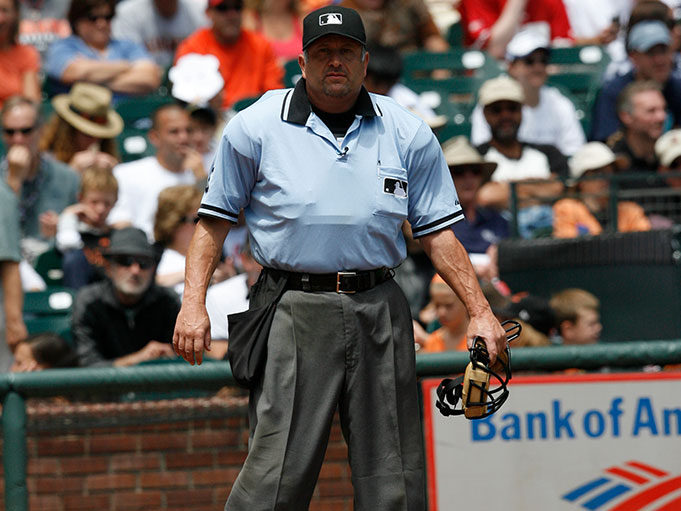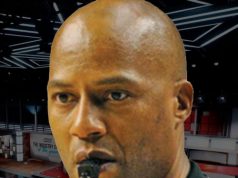Half sleep-walking through darkness to the refrigerator in his Santo Domingo apartment in the dead of night in January 1986, all Dale Scott wanted to do was to quench his thirst and collapse back into bed. Sunrise was just a few hours away and another grueling day under the scorching Caribbean sun at some ballpark awaited Scott, who was still just another name in an expansive pool of prospective MLB umpires.
Hearing a strange sound as he pulled open the refrigerator door, Scott unleashed an ear-piercing scream that could have awakened the Dominican Republic dead. A rat Scott swears was the size of a poodle emerged out of nowhere, ricocheted off his arm and disappeared somewhere in the apartment.
Grinding poverty is a reality in Santo Domingo, a land where the poor simply exist in the remote shadows of the privileged. To this day, Scott recalls a housekeeper named Carmen the four men paid $40 a month — far more than the average wage in that area — pulling him aside to ask if he might take her to the United States so she could send decent money back to her family. But rats in refrigerators? That was a new one.
“We were able to get it to run out, slamming the door behind us,” Scott said. “We just looked at each other in silence for a second and then we all burst out into laughter. Here we were, 3 o’clock in the morning, standing in our underwear and me holding a broom in the Dominican Republic. You just can’t make that s— up!”
Talk about the ultimate guy to sit beside on a bar stool for a few cold ones. Dale Allan Scott is one of the most respected, longest-tenured umpires in MLB, but he’s an even more memorable person. Shake hands with this self-effacing master storyteller for the first time and within five minutes you’ll swear he has been a lifelong pal. He has the distinctive, radio-rich voice of a Vin Scully and the comedic timing of a George Carlin. He’s a guy who once held his ground with a melting-down Billy Martin as a 28-year-old upstart in 1988, yet could effortlessly transition into a gregarious lampshade-on-the-head cut-up who could coax a smile from a corpse.
“He was the funniest kid I ever met and, to this day, is still one of the quickest wits I have ever known.” said Barb Hansen, a childhood friend from Eugene, Ore. “His keen wit and ability to make others laugh and be entertained is what I believe shaped him his entire life. Whether he wanted to be the center of attention or not, he just always was.”
Scott agrees with the suggestion that his personality is similar to the wisecracking Hawkeye Pierce character from M*A*S*H.
“I was like Alan Alda. not so much in my looks, but just my personality,” he said. “I’m not a joke teller. I’m more of a quick wit and I’ve had a number of people tell me, ‘Oh, you should be a comedian!’ Laughing to me is a good cure for a lot of things. I laugh at myself. And sometimes that’s a defense mechanism. That’s how I deal with things at times.”
Pursue just about any topic and Scott, a devoted history buff, will likely amaze you with his command of the subject.
“I’ve known Dale since we were seventh graders,” said Greg Reeves, another of Scott’s childhood friends in Eugene. “As a kid, Dale was well-liked by everyone. I can’t think of one person who didn’t like the guy, which is rare at that age. Other than perhaps a certain player or manager, it seems to hold true today.”
Maybe the gregarious Scott didn’t exactly fit the profile of a future umpire back in the day because he simply didn’t have a combative bone in his body. Yet when the reality of his limited physical skills started diminishing his childhood vision of being a future first baseman for the Los Angeles Dodgers — “the problem is I couldn’t run, throw, hit or catch,” Scott recalls — the calling to become an umpire echoed ever more forcefully within his soul.
“Dale knew what he wanted to do early on,” Reeves said. “His drive to succeed might be the biggest attribute, in my opinion. As kids, when we would go to the local ballfield, he’d start umpiring our games. Now, there wasn’t one person on that field with enough talent to play baseball professionally, but at least Dale made it to the majors in some capacity.
But foreshadowing the extreme growing pains Scott would endure on his road to greatness, he struggled mightily as an umpire in his early years.
“I never talked to Dale like this because I didn’t want to discourage him,” said Ken Larson, the retired commissioner for high school, college and semipro baseball in Eugene who got Scott started in umpiring at the age of 16 in 1975. “We had a community college regional playoff (in the early 1980s) and Dale had one of the worst strike zones I’d ever seen that weekend. He was low, he was out and when we left there, I said, ‘Boy, he’ll never make it!’
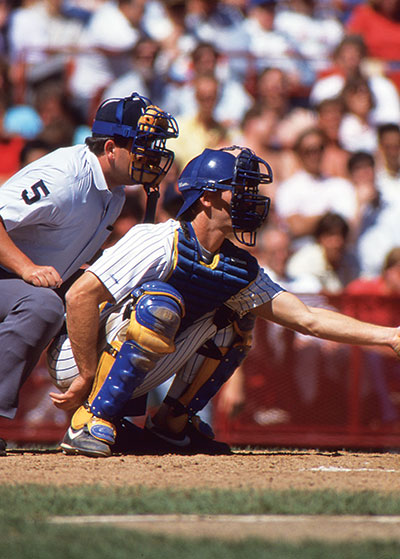
Scott was nearly fired after a disastrous second year in the big leagues in 1987 — credit the late Marty Springstead, the AL’s executive director of umpires at that time, for making a shoestring catch on Scott’s career — but he persevered to place himself among the all-time elite contingent of umpires. Heading into what Scott says are the final few years of his career, he has worked three World Series, three All-Star games, six league championship series and 10 division series.
Scott’s resumé includes three World Series, three All-Star games, six league championship series and 10 division series.
“Dale was one of the best umpiring partners I ever worked with in 24 years as a major league umpire,” said Larry Young, who retired after the 2007 season and now serves as umpire supervisor for MLB. “He is now one of our finest crew chiefs. The trait that is most important in a crew chief is always thinking of your crew first. He has always done that.”
His impact even crosses over into other sports. Bill Kennedy, a longtime elite NBA referee, insists his 10-year friendship with Scott has enhanced him both as an official and as a human being.
“I have been in awe of both his professional baseball career and the friendship we have developed that is still going strong today,” Kennedy said. “I’m a firm believer that because of a chance meeting with him over 10 years ago, I have been able to strive forward with my own career. His professionalism on and off the field has given me a blueprint of what it takes to survive in a professional sports officiating world.
But Scott easily could be working today behind a microphone within the confines of a radio studio or even on a Las Vegas night club stage. Scott simply was blessed with that “it” factor. He was the lead drummer in the Henry D. Sheldon High School jazz band and, as Hansen recalls, “he was envied by most kids for this talent.” He frequently served as master of ceremonies for high school functions — his effortless knack for ad libs is legendary — and he arrived in that role for senior prom decked out in a tuxedo, top hat and cane.
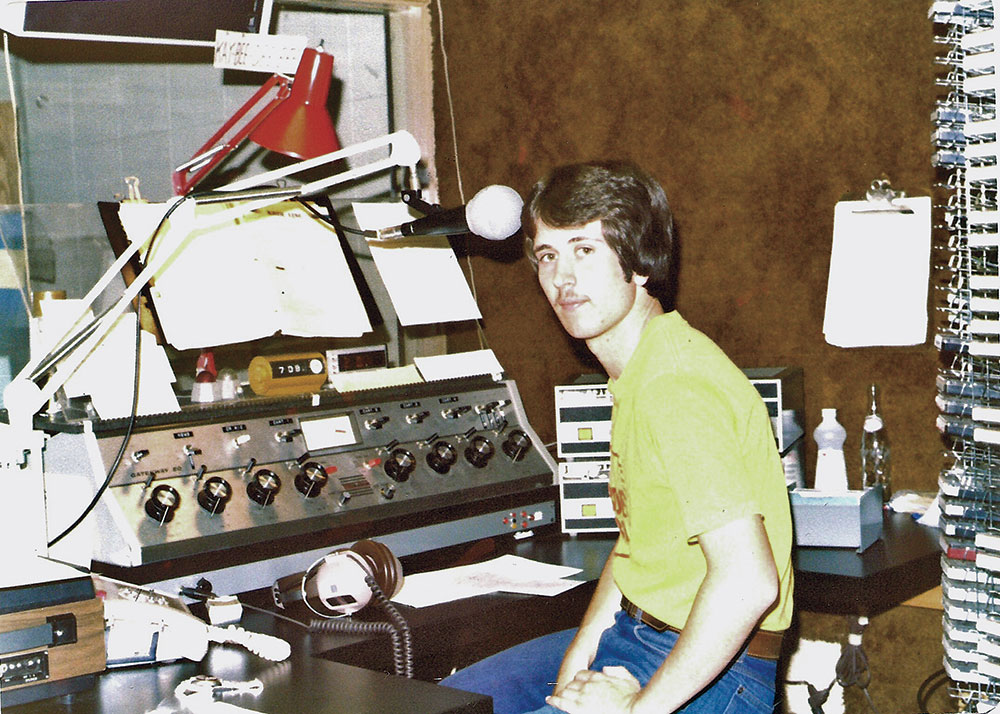
“He was a huge hit as a DJ for our school radio station,” Hansen said. “He always had a huge following and it was no surprise when he was hired as the youngest DJ at the most popular radio station in Eugene during high school. After high school, he went on to get his degree in TV/radio broadcasting (at Oregon) and I always believed Dale would end up as a sportscaster.”
There Scott was as that 18-year-old star, working the 7-11 p.m. shift spinning hits of the day at KBDF in Eugene, when AM radio still ruled the airwaves. As a result, Scott’s profile among his classmates was off the charts. Hey, this kid was a star!
“He worked at KBDF for a number of years on a part-time basis and was certainly a hit at his school because of it,” said Bill Beecher, KBDF’s program director during Scott’s time at the station. “He always had a real passion for the business and music at the time. The next thing I knew he was off to umpire school.”
That was late 1980, when Scott enrolled in Bill Kinnaman’s umpire school in San Bernardino, Calif. Still just 21 at the time, Scott reasoned that he could always get back into radio if umpiring didn’t work out. In fact, he briefly reprised his radio voice for a short stint in 1983, when he was well on his way as an umpire.
It was a short five-plus years from the time he enrolled in that umpire school until he worked his first major league game, Aug. 19, 1985, as a replacement for Nick Bremigan and was then hired full time April 1, 1986. Way too short, Scott contends in retrospect, for he clearly was not ready when he was hired full time. The paradox is that it was also the longest stretch of Scott’s life, which he illustrates with another Dominican story.
“I was having what I call a ‘Dominican Day,’” he said. “I remember it was about four in the morning and it was two months into a three-month season. I’m (sick to my stomach). I’ve got an inner-ear infection that’s just killing me and I’m thinking to myself, ‘If I don’t make it to the big leagues, I’m suing somebody and there’s not a jury in the world that’s not going to vote in my favor on this one!’ It was a miserable couple of days where I was real sick.
There were plenty of struggles on the field as well, struggles that Scott enhances with his one-of-a-kind storytelling prowess. Take this memory from a 1984 Texas League game, as only Scott can tell it.
“I remember one manager came out with the lineup cards before the game and he said, ‘We are going so bad that there may be a point tonight when I come out and go crazy on one of you guys. Just don’t take it personally because I’ve got to fire these guys up.’ And I say, ‘All right …’
“Well, in the fourth inning, I‘ve got a play at first and it was a close play, but I’m pretty sure I got it right. The manager comes running out and I kind of misread him because he wasn’t coming out to fire up the team. He was really p—–! I say, ‘Hey, Bob, is this the time you want to get mad?’ And he says, ‘Oh, go f— yourself!’ And he went off! And I thought, ‘Oh, man, he really is mad!’”
Scott accents his storytelling with occasionally chuckles, but he would reach a point when there was no humor to be found. Just enormous hardship and heartbreak.
By 1987, Scott’s second year in the major leagues, he clearly was fighting a losing battle as he tried to establish himself as an umpire. His career hit rock bottom the evening of July 1, when Scott was working the plate for a game between the Boston Red Sox and Baltimore Orioles before a crowd of 33,075 at Fenway Park.
“It was one of those games where nothing went right,” Scott said. “I struggled behind the plate and I called a foul tip a third out when the ball skipped off the dirt. I had to bring Boston back on the field after a vigorous Orioles argument. The whole game was kind of a microcosm of my entire disastrous ’87 season.”
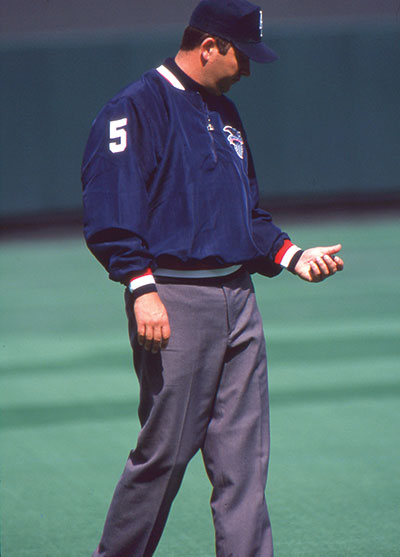
Scott’s confidence was rapidly eroding. He was getting saddled with the reputation among managers and players that he was going to be one of those guys who would consistently miss a call — an image that’s almost impossible to shake in the unforgiving world between the chalk lines. And there was that mortgage he took on the previous November, which weighed him down all the more on his fraying tightrope.
If not for the kindly Springstead, Scott candidly concedes he would no longer be an MLB umpire. Springstead, who died in 2012, clearly had to do something and dismissing Scott was very much on the table. He called Scott into his New York office shortly after the 1987 All-Star break and informed him what was at stake, but tempered that reality with genuine compassion.
“He told me that day, ‘If things don’t change, I’m going to have to let you go,’” Scott said. “I was devastated. I was absolutely devastated. But then he said, ‘What we’re going to do, Dale, is we’re going to get through this season and have you come down to Sarasota for Instructional League.’ You have to understand this is my second year in the big leagues and I’m having to go to the Instructional League. That’s a huge chunk of your pride and ego being ripped out.
“But I knew he was right. Something had to change because I was not getting the job done. My confidence and everything else was just horribly low.”
Worse came to worst. Dick Butler, Springstead’s predecessor as the AL’s executive director of umpires who still worked for the league, informed Scott later in the season that Springstead also wanted to send Scott back to the Dominican Republic that winter.
“Marty didn’t understand that in the Dominican, you work 45 out of 65 games behind the plate,” Scott said. “Marty is doing everything he could do save my job and I owe so much to that man. But I call him and say, ‘Marty, that’s more plate jobs than I worked in the big leagues in a season. Mentally I cannot do it. I am fried right now.’ Once he understood that, he said, ‘I’ll tell you what. You go down there at the beginning and I’ll have you home by Thanksgiving.’”
Springstead even sent Richie Garcia, known for his umpiring and bilingual skills, to work with Scott south of the border. And a reclamation project was under way.
“The main reason I went to work with him was to work on his positioning behind the plate, get him in the slot, get his head height up and get him to be more consistent with his plate work,” Garcia said. “He was always willing to work. He never shied away from hard work or constructive criticism. He was always listening and attentive to what I had to say. I’ve only got good things to say about Dale.”
That sentiment is pretty much across the board these days. The speed bump Scott hit in 1987 is ancient history and his true greatness dwarfs the growing pains he once experienced, as immense as they were at the time. Struggles have been replaced by milestones and Scott went on to work his 3,000th regular-season game on Aug. 14, 2009 — his 50th birthday. It was almost as if it was written in the stars. And as the years passed, Scott gradually evolved from an overmatched novice into a master of his trade who would even take on the role Springstead once had for him.
But as one would expect from Scott, his wisdom is always packaged with plenty of humor. Dan Iassogna, who went on to work the 2012 World Series, was a Triple-A umpire when he was called up to work on Scott’s crew for a historic interleague game between the New York Yankees and Chicago Cubs on June 7, 2003, at Wrigley Field. Iassogna was working the plate and was understandably tense as the Yankees’ Roger Clemens went for his 300th career victory.
“In the second inning, there’s a collision on a pop fly and Hee-Seop Choi, the Cubs’ first baseman, takes an elbow to the head and is unconscious on the third-base line,” Iassogna said. “I’m not even warmed up yet and I see the ambulance driving down the first-base line and stopping at home plate. Dale wanders over to me and we’re watching Choi being worked on. In an anxious voice, I say, ‘Can you believe I’ve got fire trucks on the field during my plate job?’ Without any hesitation, he says, ‘Yes, but I didn’t think they would be here this early.’
“We had to cover our faces to hide the laughter. From umpire school on, the joke is you’ll need the fire hoses to douse the dugouts on some nights and here my crew chief is dropping it on me during the biggest game of my life. It completely brought me back down to earth. The laughter relaxed me and, after the field cleared, the game went well. That’s the kind of crew chief you want to work with.”
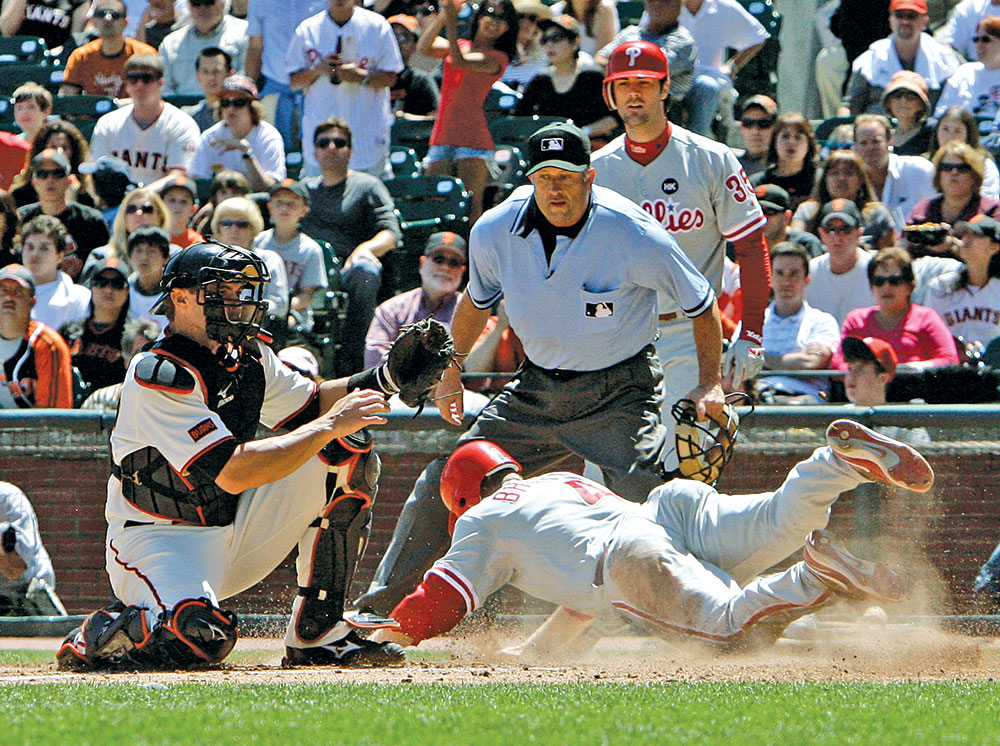
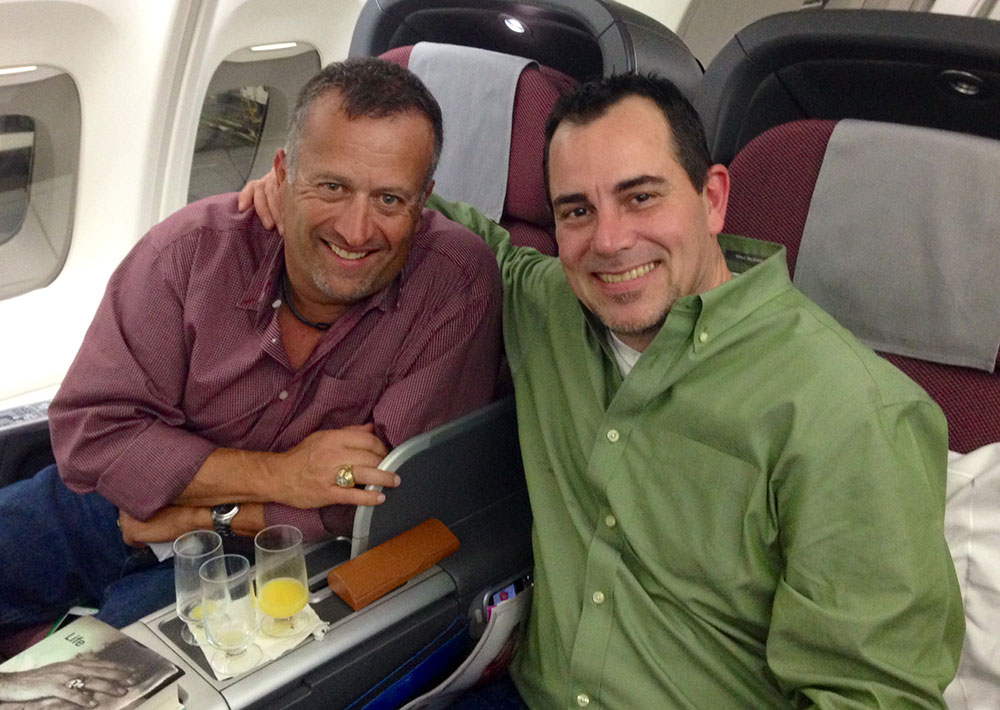
The list of the 55-year-old Scott’s career milestones include countless memorable high-profile games, highlighted by his World Series assignments in 1998, ’01 and ’04. He was on the bases for both of Justin Verlander’s no-hitters. He worked the plate when Andy Hawkins became only the second pitcher to lose a complete game no-hitter. There was the time Scott was informed by third baseman Gary Gaetti that the Minnesota Twins were about to turn their second triple play of the game and then saw that come to fruition on the next pitch.
But the best memories are when Scott is able to shift into his storytelling mode. Like a game involving Twins Manager Tom Kelly early in Scott’s career.
“One of my favorite stories is working home plate in Oakland, runners on first and second and Minnesota is at bat,” Scott said. “They had an infielder, Steve Lombardozzi, who put down a sacrifice bunt, a perfect bunt. Unfortunately, Steve didn’t run in the running lane. So when the catcher threw the ball to first, it hit him in the back and I called interference. He’s out, I’m sending the runners back to their bases and it was a Monday Night Baseball game.
“Here comes Tom Kelly. He’s screaming, ‘I can’t believe it!’ and I’m gearing up for a pretty big argument because I’m taking two guys out of scoring position. He says, ‘I can’t believe it, Dale! He puts down a perfect damn bunt and he can’t run in the running lane!’ I start laughing.
“He puts a finger right in my face and he says, ‘You can’t laugh! You can’t laugh! The camera is on us! I cannot believe it! He puts down a perfect bunt and you make a great call!’ He throws his arms up and it’s just like he’s chewing my ass! And then he says, ‘I’m done!’ and walks away.
“After the game was over, I had friends calling who were watching it and they were like, ‘Why didn’t you throw him? My God, he was riding your ass!’ I said, ‘You won’t believe what he was saying!’”
The time is drawing near when a master in his field whose heart beats with so much compassion under his chest protector is going to leave the game behind.
And will he ever be missed when that sad day arrives. For he has almost effortlessly become a friend to just about everyone he has encountered.
“There was a knock on my motel door,” longtime NBA referee Bill Spooner recalled from when he met Scott while working spring training games at Yuma, Ariz., in March 1981. “I open it up and there stands a guy who looks younger than my baby face. ‘My name is Dale,’ he said. I look him up and down a bit and say, ‘Do you like beer?’ ‘Yep,’ he says. And I say, ‘My name is Bill. Come on in.’ We’re still friends 33 years later.
“He’s best described as one of the good guys. He never gives people the big-shot act. Just unconditional friendship.”
“For me personally, Dale symbolizes respect, a tremendous friend and an invaluable mentor,” Kennedy said. “In the infamous words of Dale Scott, ‘Keep hope alive!’”
Which is what Scott did himself.
“Everything about his early career is long, long past,” said retired umpire Dave Phillips. “Dale has the reputation as a veteran umpire where, when he walks on the field, people say, ‘Oh, good! It’s Dale!’ You earn the benefit of the doubt and he has earned that long ago. He has become an outstanding umpire. He has earned that reputation among hitters and pitchers that this man can umpire.
“And he can. He can.”
What's Your Call? Leave a Comment:
Note: This article is archival in nature. Rules, interpretations, mechanics, philosophies and other information may or may not be correct for the current year.
This article is the copyright of ©Referee Enterprises, Inc., and may not be republished in whole or in part online, in print or in any capacity without expressed written permission from Referee. The article is made available for educational use by individuals.

